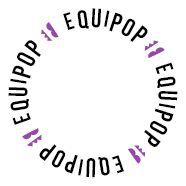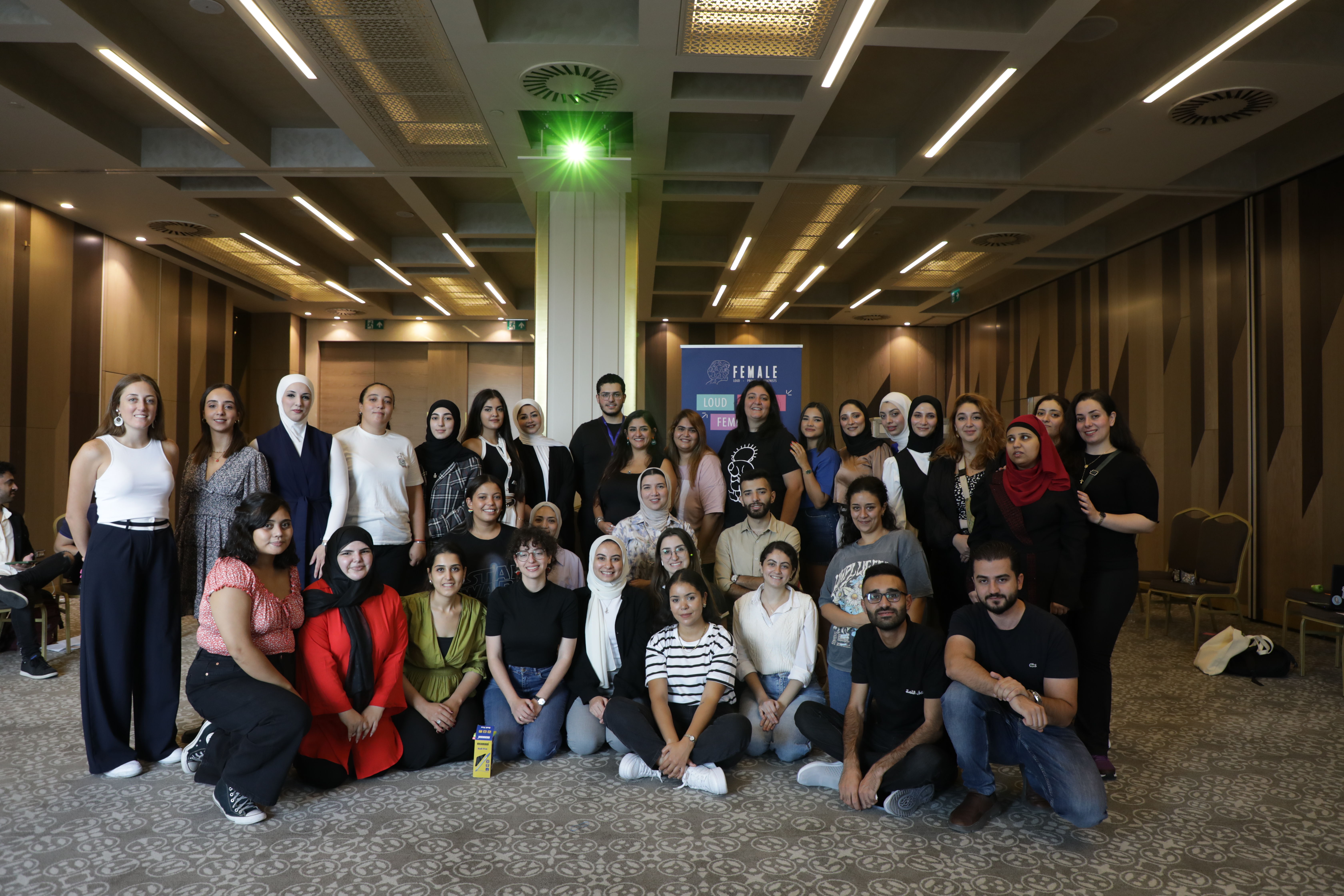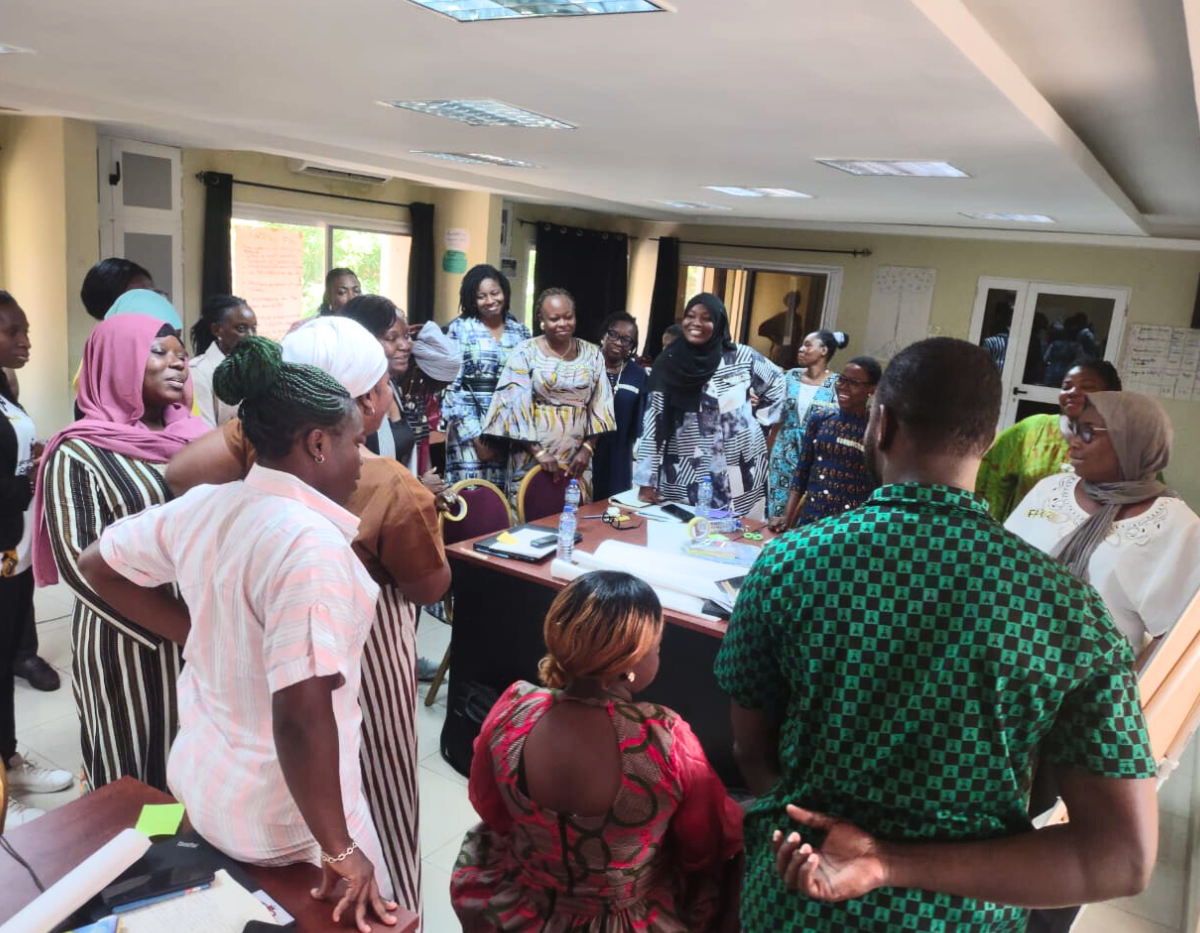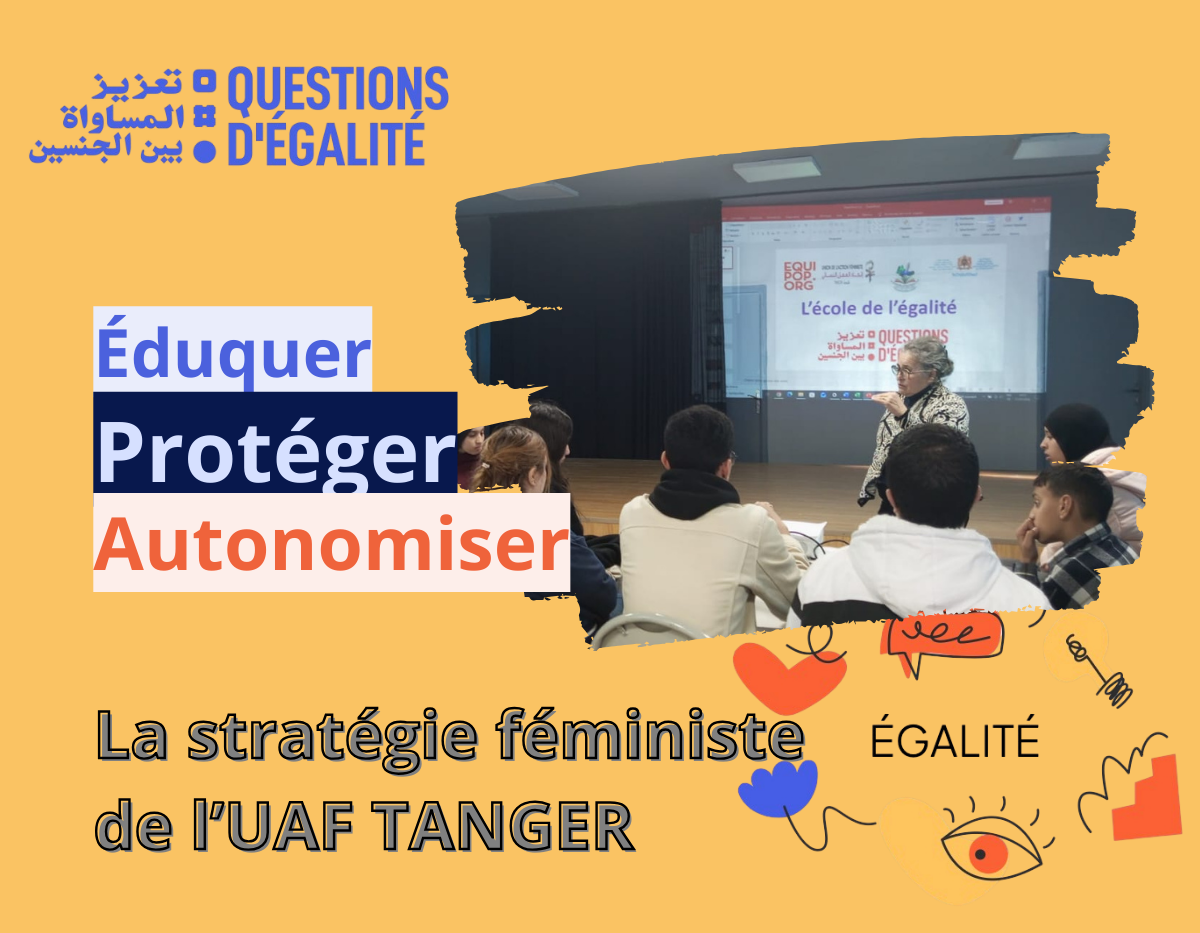In Lebanon, the feminist organization FEMALE stands at the forefront of the struggle for gender equality and justice. Partnering with Equipop within the « Question d’égalité” project – implemented in Morocco, Tunisia, and Lebanon – FEMALE works to sustain feminist organizing, amplify young women’s voices, and promote inclusive, intersectional approaches to advocacy and leadership. In this interview, Mariam Khodari shares their vision, challenges, and hopes for building stronger feminist movements across the region.
About FEMALE & its vision
- Could you briefly introduce FEMALE and share the feminist vision that drives your work in Lebanon and the wider SWANA region?
Established in 2012, FEMALE is a feminist grassroot organization committed to strengthening, expanding, and sustaining the feminist movement across Lebanon and the wider SWANA region. Our work is grounded in intersectionality and inclusivity, engaging women and girls in all their diversities including refugees, migrant workers, and IDPs. At FEMALE, we aim to dismantle patriarchal systems by creating inclusive and accessible platforms for feminist organizing, leadership, and advocacy. We do this through a decentralized model of community engagement, capacity development, protection services, feminist campaigning, and knowledge production. FEMALE operates across Lebanon, with a strong grassroots presence through our community centers in Tripoli, Beirut, and in Mount Lebanon (our newly established center following the tragic bombing of our previous centers in Bekaa and South Lebanon). In Bekaa and the south, we continue our work in partnership with local CSOs, ensuring continuity in our outreach and activities. Those centers function as safe spaces where women and girls gather to learn, connect, and lead. Through our year-round feminist programs, we foster leadership, critical thinking, and feminist consciousness among girls and women from all backgrounds.
- From your perspective, what is the most pressing challenge that women and young feminists face today in Lebanon?
In Lebanon, women and girls in all their diversities and backgrounds continue to face multiple, overlapping challenges that threaten their rights, safety, and dignity. Biased laws still deny them equality and limit their freedom to express themselves and to live as they choose. Each step toward claiming their rights, whether through political participation, access to SRH services, or simply demanding accurate information, is often met with resistance, backlash, and the persistent narrative that their needs are not a priority.
Today, women and girls are also confronting a new and alarming form of GBV, which is TFGBV, where online spaces meant for connection and expression have become arenas of intimidation, harassment, and silencing. This digital violence mirrors and reinforces the discrimination they face offline, further restricting their presence and voice.
In addition, safe spaces for women and girls to express themselves freely are increasingly limited, especially in rural and marginalized areas distant from the capital. The compounded crises that have struck Lebanon since 2019 have only deepened these inequalities. Women and girls remain among the most affected, their needs consistently overlooked and their protection mechanisms weak or absent.
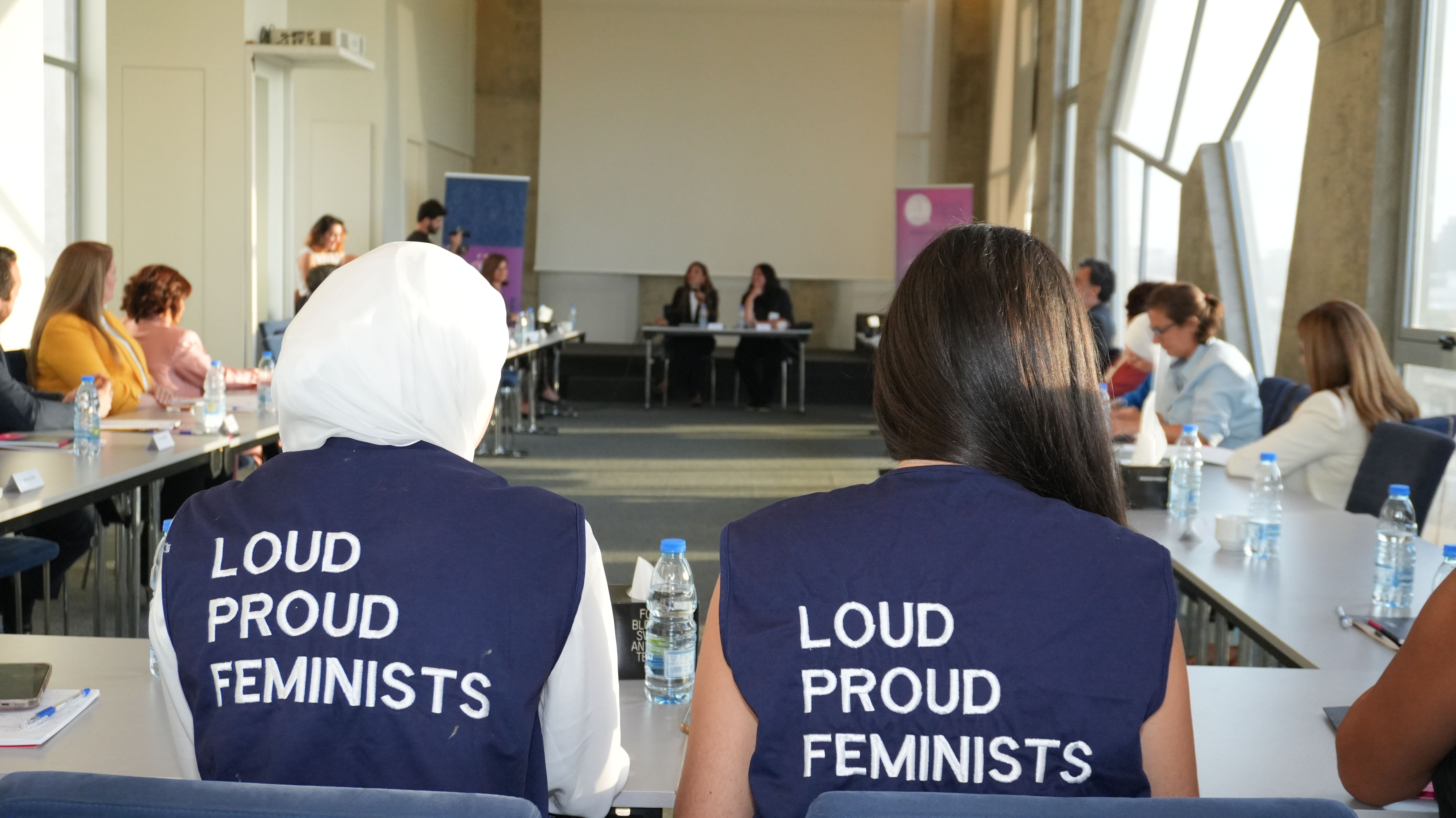
2. Engagement in Questions of Equality
- Why did you decide to take part in the Questions of Equality project, and what does this partnership mean to your organization?
For FEMALE, partnerships are meaningful when they are grounded in shared feminist values and a common vision for a just world for women and girls. This is exactly what we saw in Equipop and the Questions of Equality project; a collaboration built on trust, equality, and solidarity among feminist actors.
This partnership holds deep significance for FEMALE, as it goes beyond funding. It gives us the space and autonomy to act according to our vision, to design and lead our initiatives without external restrictions or imposed agendas. The flexibility of the fund allows us to stay responsive to the realities women and girls face in Lebanon, to sustain our work in times of uncertainty, and to continue building a strong, independent feminist movement that drives long-term change.
- What specific activities are you leading as part of the project in Lebanon?
As part of the Questions of Equality project in Lebanon, FEMALE is leading activities that aim to strengthen its institutional sustainability and advocacy capacity while advancing feminist action across the country. Specifically, the project focuses on:
- Ensuring staff retention and operational continuity by maintaining the salaries of key program staff who are directly involved in implementation and coordination of FEMALE’s initiatives across Lebanon.
- Advancing advocacy and lobbying efforts on the OGBV Law to strengthen its influence, visibility, and effectiveness at national level.
- Sustaining and enhancing FEMALE’s community centers in Tripoli, Beirut, and Chouf to increase their capacity to host awareness-raising sessions on GBV, SRHR, and OGBV, and to provide safe, accessible spaces for women and girls.
- Supporting the Sharika Wa Laken (SWL) platform by covering core team salaries and production-related costs to ensure continued feminist knowledge production, documentation, and media advocacy.
- Why is flexible feminist funding important to young feminist movements ?
Flexible feminist funding is essential for young feminist movements because it allows them to sustain their activism, respond to emerging needs, and remain independent in their strategies and priorities. In contexts like Lebanon, where feminist organizations operate under political instability, economic collapse, and shrinking civic space, such flexibility is not a privilege but a necessity for survival.
Traditional funding often comes with rigid frameworks, short timelines, and donor-imposed agendas that limit organizations’ ability to act based on their lived realities and feminist principles. For young feminist movements, this rigidity restricts creativity, responsiveness, and long-term planning, especially when most grants are project-based and rarely cover core costs such as staff salaries, rent, or community engagement.
Flexible feminist funding, on the other hand, is grounded in trust and shared values. It recognizes that feminist organizations know best how to allocate resources to sustain their teams, strengthen their advocacy, and nurture safe spaces for women and girls. It enables them to respond to crises, experiment with new ideas, and build resilient structures that can withstand the constant uncertainty of the political and financial environment.
For movements like FEMALE, this type of support sustains institutional stability, ensures staff well-being, and protects feminist voices from being silenced by financial insecurity. It also allows the organization to invest in long-term goals; such as lobbying for the OGBV law, producing feminist knowledge through the Sharika Wa Laken platform, and keeping community spaces accessible to women and girls.
Ultimately, flexible feminist funding is not only about sustaining organizations; it is about sustaining feminist resistance itself. It ensures that young feminist movements can continue to challenge patriarchal systems, document injustices, and create pathways for change rooted in solidarity, autonomy, and collective care.
3. Impact & Change
- About the upcoming Arts and Sports Day: What is the event about, what are its main objectives, and how does it aim to empower and inspire young girls?
This activity was not included in the initial proposal, but the opportunity to access a small grant allowed us to organize it despite limited funds. The Arts and Sports Day brings together FEMALE’s basketball and football teams from five areas, along with the volleyball team supported by FEMALE, in a friendly tournament that combines physical activity, creativity, and collective celebration.
The event aims to create a safe and inclusive space where girls can connect, strengthen their self-confidence, and express themselves freely, away from the stereotypes and social restrictions that often limit their participation. It encourages them to see sports and arts as tools for empowerment, solidarity, and self-discovery.
By bringing together girls from diverse communities, the event promotes dialogue, learning, and mutual reflection. It helps young girls recognize that there are spaces that value their presence, voices, and differences, and inspires them to support one another as part of a wider feminist community. The main objective of this day is to provide a moment of joy, connection, and empowerment, where girls can share experiences, discuss issues that matter to them, and celebrate their collective strength.
- In what ways does the project help strengthen the feminist movement in Lebanon, especially in a context that can sometimes be hostile to women’s rights?
The project strengthens the feminist movement in Lebanon by sustaining FEMALE’s institutional and advocacy capacity in a context that remains hostile to women’s rights. By ensuring staff continuity and maintaining community spaces, FEMALE can continue leading initiatives that challenge gender inequalities, advance SRHR and GBV advocacy, and promote feminist values across the country.
Through lobbying on the OGBV law, the project reinforces feminist presence in policymaking and strengthens collective advocacy for protection and justice. Support for the Sharika Wa Laken platform amplifies feminist knowledge and narratives that counter discrimination and create space for dialogue and awareness.
At the community level, sustaining FEMALE’s centers in Tripoli, Beirut, and Chouf ensures that women and girls have safe and inclusive spaces to learn, connect, and act collectively. The Arts and Sports Day complements this effort by offering young girls opportunities to express themselves freely, build confidence, and form bonds across different areas, transforming empowerment into lived experience through solidarity and celebration.
- FEMALE is known for challenging media stereotypes — how are you bringing this expertise into Questions of Equality?
FEMALE’s work has always centered on transforming how women and girls are represented in the media and public discourse. Through the Sharika Wa Laken platform, we consistently challenge sexist stereotypes, amplify feminist voices, and produce narratives that reflect the realities, struggles, and achievements of women and girls in Lebanon.
Within the Questions of Equality project, we bring this expertise by integrating feminist media practices across all our activities. Our approach ensures that communication and storytelling are not neutral tools but instruments of resistance and advocacy. Through content creation, documentation, and awareness campaigns, we highlight women’s lived experiences, expose online and offline gender-based violence, and promote alternative narratives grounded in equality, diversity, and solidarity.
By combining advocacy, media, and community engagement, FEMALE ensures that feminist perspectives shape public conversations and challenge the dominant narratives that marginalize or misrepresent women and girls. This approach not only strengthens the project’s visibility and impact but also contributes to building a more inclusive and conscious feminist movement in Lebanon.
4. Regional Solidarity & Perspectives
- FEMALE also works regionally.What kind of solidarities or collaborations are you hoping to see emerge with feminist organizations in Morocco and Tunisia through this project?
FEMALE hopes that this project will open new spaces for genuine feminist solidarity and collaboration with organizations in Morocco and Tunisia. We envision building a regional network of young feminist actors who can exchange strategies, experiences, and tools for advocacy on issues such as GBV, SRHR, and digital safety.
- In your view, what can Lebanon contribute to feminist struggles in the region, and what lessons can Lebanon learn from them?
Lebanon’s feminist movement, though operating under challenging conditions, has built strong expertise in grassroots organizing, advocacy on digital rights, and online mobilization. These experiences can contribute to regional feminist struggles by sharing approaches to resisting backlash, addressing TFGBV, and ensuring safe spaces for expression. At the same time, Lebanon can learn from the feminist movements in Morocco and Tunisia, particularly their progress in policy reform and institutional engagement, as well as their approaches to integrating feminist values into governance and community-based advocacy.
5. Looking Ahead
- If you could summarize in one sentence the change you hope Questions of Equality will achieve, what would it be?
We hope that Questions of Equality will contribute to building stronger, more connected, and sustainable feminist movements in the region, where organizations like FEMALE can act freely, speak collectively, and create long-term change for women and girls.
- What are the next big battles or priorities for FEMALE as a feminist organization?
The next big priorities for FEMALE are to advance the adoption of the OGBV law in Lebanon, strengthen feminist organizing at the community level, and expand safe and inclusive spaces for women and girls across the country. We will continue to challenge patriarchal narratives in the media through the Sharika Wa Laken platform, invest in young feminist leadership, and secure sustainable resources that allow us to maintain our independence and deepen our impact.

